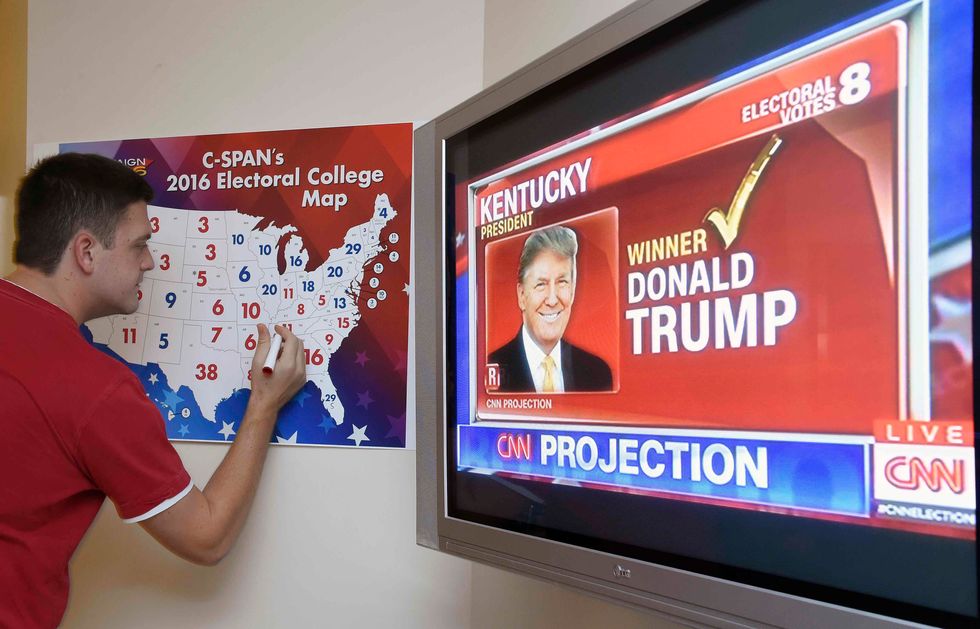A new Washington Post op-ed calls for "getting rid of" states in the United States of America and moving to a system where only federal and local governments exist.
"States are a relic of the past. It’s time to get rid of them," Lawrence R. Samuel, a Miami-based author, wrote in the piece published Tuesday.
The column comes just a week after Democratic presidential nominee Hillary Clinton lost the electoral vote but won the popular vote, prompting a number of liberals to suggest that the U.S. abolish the Electoral College.
While Donald Trump resoundingly won the Electoral College — the state-based “point system” we’ve used in presidential elections for more than two centuries — Hillary Clinton won the popular vote by about 780,000 as of a week out of the election. In other words, more Americans wanted Clinton to win, reason enough to revisit the wisdom of using the electoral college to determine elections. But a larger, more important argument is often overlooked in this ongoing debate.
Samuel goes on to make the case that different states no longer represent diverse regions with their own cultural norms and identities, but "artificially constructed geographic entities."
"Pensacola, Fla., is a lot more like Mobile, Ala., than Miami," Samuel gives as just one example.
"Upstate New Yorkers are less than happy about being in the same tax pool as Manhattanites," he cited as a second example.
Samuel adds that while having states was a "wonderful idea in the 18th century" the system in which there are three layers of government — federal, state and local — has become "unnecessary" and too expensive. Eliminating this middle layer, he argues, would save the American people billions of dollars a year, which could then be used to help pay down the national debt or fund Social Security and health care.
Samuel writes that as technology has developed, the American people have become more united.
The automobile and the jet allowed us to conquer space, and the Internet has virtually obliterated the lines of geography. We now shop at the same kind of stores (or websites), watch the same kind of television shows and work at the same kind of jobs. More important, we share the same basic principles and core values grounded in the unalienable rights of life, liberty and the pursuit of happiness — despite trivialities like New Englanders’ charming (or annoying) pronunciation of the word “park” or Southerners’ inclination to eat grits for breakfast.
Samuel concludes that because of this change, it is now time that the U.S. start "thinking of ourselves as one people — Americans — who live in real, local communities rather than as 50 kinds of people living in imaginary regions."



